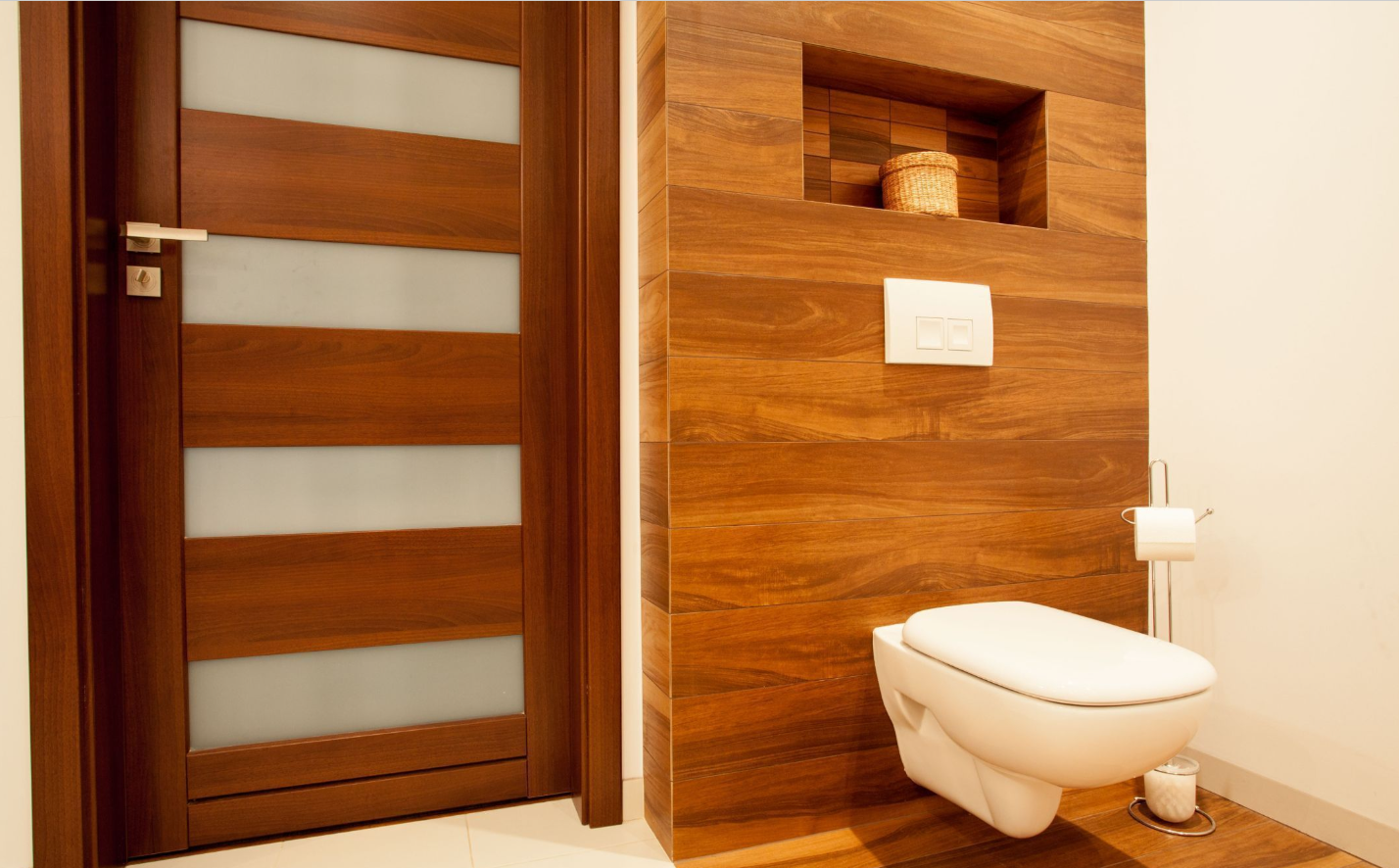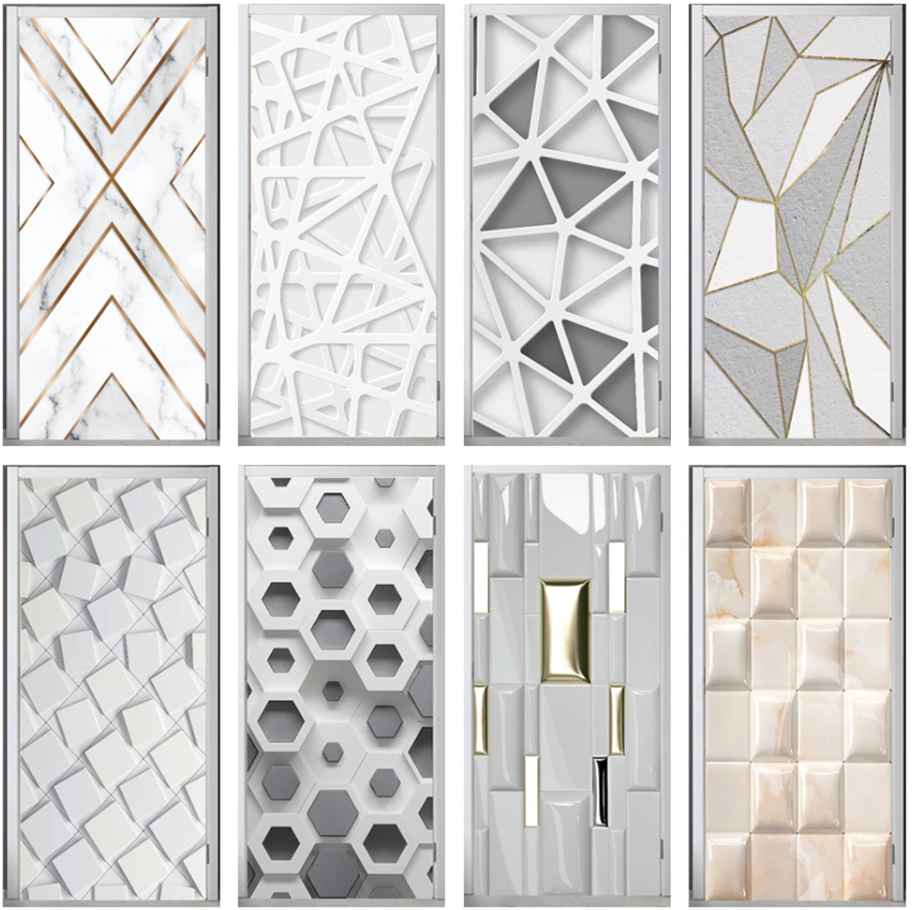Yes, PVC doors are inherently water-resistant due to their chemical composition and manufacturing process, making them ideal for moist environments.
What is PVC?
Chemical Composition
PVC stands for Polyvinyl Chloride. At its core, PVC is made of carbon, hydrogen, and chlorine. The formula is , comprising two atoms of carbon, three atoms of hydrogen, and one atom of chlorine. This is a synthetic plastic polymer, meaning it doesn’t exist naturally but requires a manufacturing process for its creation. Ethylene and chlorine are the primary raw materials, undergoing a process known as polymerization to form PVC.
For further information on chemical compositions of plastics, you can refer to the Wikipedia page on polymer chemistry.

General Properties
PVC is known for its high tensile strength, resistance to chemicals, and most notably, its waterproof capabilities. It’s commonly used in a variety of settings, including construction, automotive, and healthcare. There are two main types of PVC: rigid and flexible. Rigid PVC is often used in building materials like doors and windows, while flexible PVC finds its applications in items like cables and tubing.
One significant advantage of PVC is its cost-effectiveness compared to other materials like metal and wood. It’s also relatively easy to manufacture, making it a popular choice in numerous applications. PVC is highly durable and can last for many years, requiring little to no maintenance, which is especially true for PVC doors.
For more in-depth insights into the properties of PVC, check out its Wikipedia page.
How is Waterproofing Achieved in PVC Doors?
Material Characteristics
The inherent properties of PVC make it naturally resistant to water. This is mainly because of its chemical composition, which includes chlorine. The chlorine molecules within the PVC structure form a strong bond that repels water. This hydrophobic nature is one of the key factors that contribute to its waterproof characteristics. Also, PVC doesn’t rot or degrade when exposed to water, making it an ideal material for areas prone to moisture.
For more on materials science, including how properties like waterproofing are achieved, see the Wikipedia page on materials science.
Manufacturing Process
The way PVC doors are made also contributes to their waterproofing. During the manufacturing process, the PVC material is heated and molded into specific shapes. Once the door frame is molded, it undergoes a cooling process that solidifies its structure. Because of the tight molecular bonds, there are no gaps for water to permeate, thus ensuring its waterproof nature. In some cases, additives may be included in the PVC mixture to enhance its waterproof qualities further. These manufacturing techniques ensure that the door stands up not just to regular water exposure but also to extreme weather conditions like heavy rain.
You can find more information about manufacturing processes on the Wikipedia page dedicated to manufacturing.
Sealing Techniques
Even though PVC itself is waterproof, the door still needs to be properly sealed to ensure complete waterproofing. This usually involves the application of specialized sealants around the edges and any joints in the door. These sealants fill any potential gaps, ensuring that water doesn’t find a way to enter. Gaskets and weatherstripping may also be used for this purpose. By properly sealing the door, you not only ensure that it’s waterproof but also improve its thermal insulation.
For more on sealing technologies and materials, you can consult the Wikipedia page on sealant.
Advantages of Waterproof PVC Doors
Longevity
One of the most significant advantages of waterproof PVC doors is their long-lasting nature. The high tensile strength and chemical stability of PVC make these doors extremely durable. They can withstand a wide range of environmental conditions, including exposure to rain, snow, and humidity, without showing signs of wear and tear. As a result, these doors often outlast their wooden or metal counterparts. The long lifespan means you save money in the long term, as you’re not replacing doors as frequently.
For more information about the concept and factors influencing material longevity, you can visit the Wikipedia page on durability.
Resistance to Moisture Damage
Waterproof PVC doors excel in their resistance to moisture and water damage. This makes them perfect for locations prone to high humidity or frequent rainfall. Unlike wooden doors that can warp, or metal doors that can rust, PVC doors remain unaffected by water exposure. Their water-repellent nature ensures that they do not swell, rot, or sustain damage due to mold and mildew. This feature is especially beneficial in specific areas like bathrooms, basements, or outdoor settings where moisture levels are high.
To understand more about moisture damage in various materials, you can consult the Wikipedia page on water damage.
Low Maintenance
Another standout feature of waterproof PVC doors is that they require minimal maintenance. Thanks to their robust and water-resistant nature, they rarely need any special care or treatment to maintain their appearance and functionality. Regular cleaning with mild soap and water usually suffices to keep them in top condition. Unlike other materials that may require re-painting, sanding, or the application of special coatings to maintain their waterproof qualities, PVC doors retain their properties without the need for any additional treatments.
For more details on home maintenance, including caring for doors and other structural elements, you can check the Wikipedia page on home repair.
Comparison with Other Door Materials
Wood
Wooden doors offer a classic look and feel that many homeowners appreciate. They are often more aesthetically pleasing and can provide better natural insulation. However, wood is not naturally waterproof and requires regular maintenance, such as painting or staining, to protect against moisture. Over time, wood can warp, rot, or develop mold and mildew if exposed to water or high levels of humidity. This can eventually lead to more frequent replacements or costly repairs.
To know more about the properties and applications of wood in construction, check out its Wikipedia page.
Aluminum
Aluminum doors are lightweight and generally more cost-effective than steel doors. They are also resistant to rust and corrosion, which makes them a good choice for external doors exposed to weather elements. However, aluminum is not as strong as steel or as naturally waterproof as PVC. Even though aluminum doors often come with weatherproof coatings, these can degrade over time, requiring reapplication to maintain their water-resistant properties.
For further details about aluminum and its characteristics, you can refer to the Wikipedia page on aluminum.

Steel
Steel doors offer superior security and durability. They are strong and can withstand significant force, making them excellent for security reasons. However, steel is prone to rust when exposed to moisture unless it has been specially treated or coated. Like aluminum doors, steel doors may also require weatherproof coatings to improve their water resistance, but these coatings can wear off and require reapplication.
For more insights into the properties and applications of steel, visit the Wikipedia page on steel.
